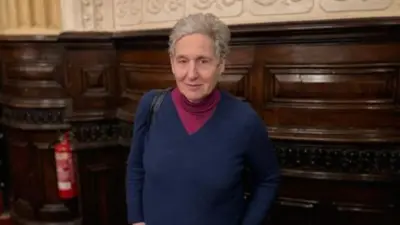We've updated our Privacy and Cookies Policy
We've made some important changes to our Privacy and Cookies Policy and we want you to know what this means for you and your data.
Evidence completed in McGregor alleged rape case
Image source, PA Media
- Author, Aoife Moore
- Role, 91╚╚▒¼ News NI Dublin reporter
All of the evidence in the civil case against mixed martial arts (MMA) fighter Conor McGregor has been heard.
Nikita Hand is taking a civil court case against Mr McGregor and his friend James Lawrence, seeking financial damages for alleged sexual assaults which took place in December 2018.
The Irish sportsman claims he had consensual sex with Ms Hand twice in the Beacon Hotel in Dublin, as does his co-defendant.
Ms Hand says she was raped by McGregor and has no recollection of ever having sex with Mr Lawrence.
Image source, PA Media
She says the MMA star choked her three times before the assault.
McGregor claimed they had "athletic sex".
The eight men and four women jury sat through eight days of evidence, including Nikita Hand, Conor McGregor and James Lawrence as well as doctors and two paramedics.
The final witness was Dr Basil John Farnan, the former principal forensic medical officer for Northern Ireland and GP.
Dr Farnan said it would be "peculiar" that a woman would ask if she could have sex while wearing a tampon, and he had not been asked this before.
He added that some of his patients have done so because they may have forgotten one was there.
Earlier in the trial, the jury heard that Nikita Hand had a tampon removed with forceps in hospital when she attended after the alleged rape.
The judge told the jury they would be sent home to return on Tuesday.
Legal arguments will continue on Friday before closing arguments are made to the jury next week.
Dublin woman Nikita Hand has accused the sportsman of rape after a Christmas night out in December 2018. He denies all allegations.
The trial is a civil case in Dublin High Court after the director of Public Prosecutions in Ireland refused to charge Mr McGregor criminally.
In a Republic of Ireland civil action - as opposed to a criminal case - neither the complainant nor the accused are entitled to automatic anonymity during the court proceedings.
Top Stories
More to explore
Most read
Content is not available








